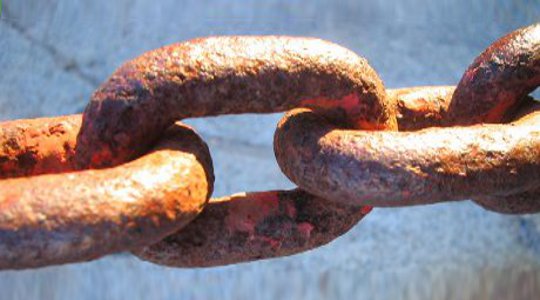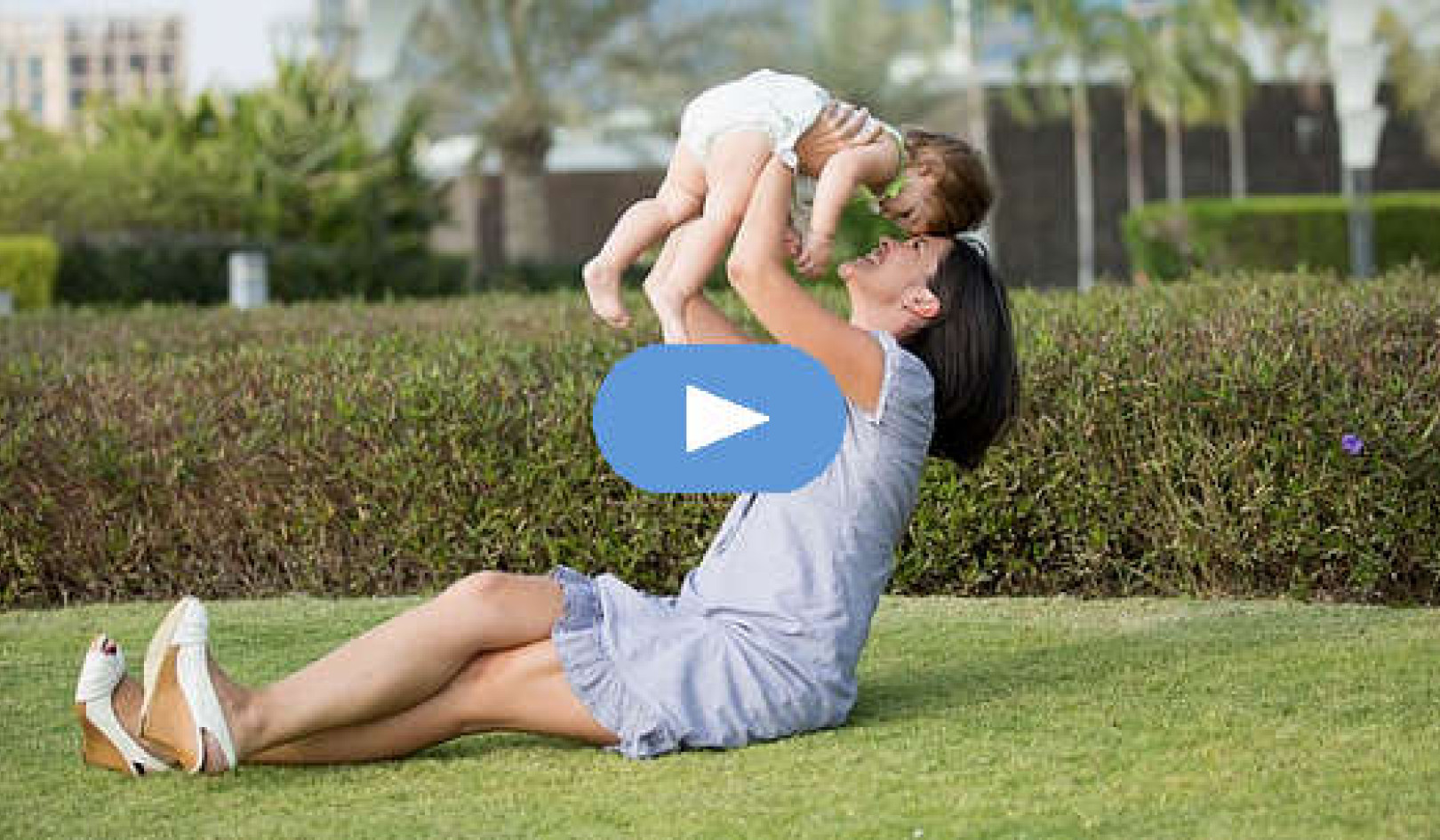
Do you have a favorite coffee mug and get a bit miffed if a guest inadvertently uses it? Do you have 'your' side of the bed? Do you try to get the same seat on the train, the same locker at the gym, the same table in the cafeteria, or the same spot in the parking lot? Do you do things in a certain order, always read the paper from the back, have to position things symmetrically or put a little bit of everything on your fork?
We all have an affinity with repetition and habit, often when there's no good reason for it. It's just familiarity, our comfort zone.
Got Some Routines?
Like all of us, you probably have a few routines or set ways into which you've slipped without even noticing. You have all kinds of automatic behaviours, personal preferences and routines that you probably aren't even aware of - everybody has. Because that's what habits are - action without thought.
We're going to help you gain some self-insight and identify some of these. Bring them out into the open and hold them up to scrutiny.
Then, each day, try something a bit different. Something that's just outside your comfort zone and will expand you as a person. If that sounds a bit scary, remember it's natural to feel that way. Dorothy Rowe, in her Guide to Life, points out that, 'If you try to make everything in your life secure, what you gain in security you lose in freedom.' So, are you ready for a bit of habit-spotting? Here we go!
What Are Habits?
Your habits are your natural tendencies, the way you would normally behave if you didn't stop and think about it. The old well-worn pathways in your brain. They might include:
- Automatic or unconscious reactions
- Set routines you follow regularly
- Things you do without thinking
- Unanalyzed views and beliefs
- Predictable or automatic responses
As humans, we are all habit machines. That's because what's automatic is an effective method of simplifying a complex world. Every second the brain receives around 10 to 12 million bits of information to process. So we have automatic processes, or habits, to enable us to make sense of all this information without having to process it all consciously (we can only consciously process around 50 bits/second). The brain effectively selects or filters the incoming information using these automatic processes. It operates on a need-to-know basis, and most of the time it does not need to know. So, habits take over - they define us.
Do Something Different
 Our habitual natural tendencies can be incredibly helpful and sensible (putting a seat belt on without thinking, washing our hands after the loo, stopping at a red light). Habits help us to size up the world, warn us of danger and make decisions without effort. But some of them can imprison us. They can lead to us unthinkingly processing any new incoming information according to what we know, rather than on the basis of what we are actually perceiving.
Our habitual natural tendencies can be incredibly helpful and sensible (putting a seat belt on without thinking, washing our hands after the loo, stopping at a red light). Habits help us to size up the world, warn us of danger and make decisions without effort. But some of them can imprison us. They can lead to us unthinkingly processing any new incoming information according to what we know, rather than on the basis of what we are actually perceiving.
Sometimes the brain is pulled up short when it has to face patterns, people and behaviors that are different to what we know or habitually do. Processing them requires conscious effort and a forging of new pathways outside the 'comfort zone' of the familiar. But when we make ourselves do so, we are freed up from the old automatic habits and no longer locked into the old ways. That's why, if you can change what you do, you can change your future.
There's nothing better for the brain than to bombard it with things it has never encountered before. New sights, new sounds, new smells, new actions and new perceptions. Because it's only when the brain is confronted with things it has never come across before that it begins to reorganize itself. Potentially, to lay down new pathways. Ones that supplant the old ones.
We know that if left to its own devices the brain would have you behave in the ways you have always done. It slips into addiction too readily. But sometimes we have to distract it from its usual ways. And you never know, you might spot new solutions to problems that haven't appeared on your mental radar before.
Sometimes it's good for us to do what doesn't come naturally. How many exciting, daring or unusual adventures have you had in the past year? How many will you have in the year to come? The solution is to seek out environments in which you have no experience. When did you last do that?
Seeking Out New Experiences & Opportunities
By following the Do Something Different programme, you will not only seek out new experiences but you'll also expand your behavioural flexibility. This makes you more open to fresh opportunities that were hidden behind your old, one-dimensional approach, perhaps opening doors that you'd never even noticed before.
What's more, by doing what comes unnaturally, you'll be more likely to notice the consequences of the non-routine behaviors. You'll spot that when you do something different, you get something different. You'll be acting on the world instead of letting it act upon you. That means more self-responsibility, which is vital for effectiveness in all areas of your life. And more open-mindedness, which can mean better relationships and far less stress. Never underestimate the power that changing yourself has on other people: bosses, colleagues, friends, partners and lovers, in positive ways.
©2011 by Ben [C] Fletcher & Karen Pine.
Reprinted with permission of the publisher,
Hay House Inc. www.hayhouse.com. All Rights Reserved.
Article Source
Love Not Smoking: Do Something Different
by Karen Pine and Ben Fletcher.
 Love Not Smoking uses scientifically proven psychological techniques to train your brain to anticipate different rewards; swap old habits for new, revitalizing ones; and learn new ways to relieve stress and get more pleasure out of your days. Giving up smoking doesn’t have to be a nightmare. Forget willpower and withdrawal — the six-week LOVE NOT SMOKING program will help you quit for good and also give you the tools for reclaiming your passion for life.
Love Not Smoking uses scientifically proven psychological techniques to train your brain to anticipate different rewards; swap old habits for new, revitalizing ones; and learn new ways to relieve stress and get more pleasure out of your days. Giving up smoking doesn’t have to be a nightmare. Forget willpower and withdrawal — the six-week LOVE NOT SMOKING program will help you quit for good and also give you the tools for reclaiming your passion for life.
Click Here For More Info or to Order This Book.
About the Authors

 Karen Pine and Ben Fletcher are both professors of psychology at the University of Hertfordshire in the UK, and are renowned experts on behavior modification. Their Do Something Different technique has had huge success in helping people lose weight, tackle stress, and improve health and well-being. Visit www.lovenotsmoking.com, where you can join Karen and Ben’s Facebook group for support, advice, and ideas. And when you’re out and about, the Love Not Smoking app will give you instant inspiration, methods to fight off cravings, and even something to occupy your twitchy fingers!
Karen Pine and Ben Fletcher are both professors of psychology at the University of Hertfordshire in the UK, and are renowned experts on behavior modification. Their Do Something Different technique has had huge success in helping people lose weight, tackle stress, and improve health and well-being. Visit www.lovenotsmoking.com, where you can join Karen and Ben’s Facebook group for support, advice, and ideas. And when you’re out and about, the Love Not Smoking app will give you instant inspiration, methods to fight off cravings, and even something to occupy your twitchy fingers!
Related Books
at InnerSelf Market and Amazon




























